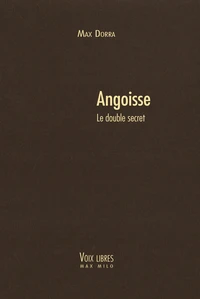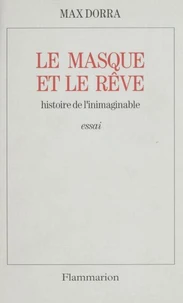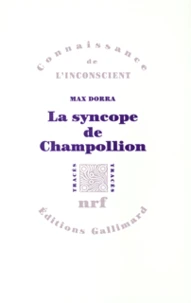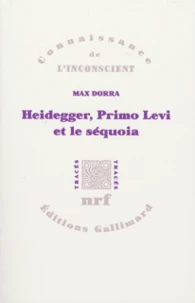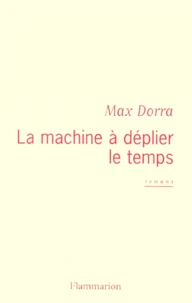Anguish
Par :Formats :
Disponible dans votre compte client Decitre ou Furet du Nord dès validation de votre commande. Le format ePub protégé est :
- Compatible avec une lecture sur My Vivlio (smartphone, tablette, ordinateur)
- Compatible avec une lecture sur liseuses Vivlio
- Pour les liseuses autres que Vivlio, vous devez utiliser le logiciel Adobe Digital Edition. Non compatible avec la lecture sur les liseuses Kindle, Remarkable et Sony
- Non compatible avec un achat hors France métropolitaine
 , qui est-ce ?
, qui est-ce ?Notre partenaire de plateforme de lecture numérique où vous retrouverez l'ensemble de vos ebooks gratuitement
Pour en savoir plus sur nos ebooks, consultez notre aide en ligne ici
- Nombre de pages144
- FormatePub
- ISBN978-2-315-01168-1
- EAN9782315011681
- Date de parution04/07/2023
- Protection num.Adobe DRM
- Taille3 Mo
- Infos supplémentairesepub
- ÉditeurMax Milo
Résumé
The words of others, as an unpleasant remark ("You're not hardworking") or a medical diagnosis ("You're bipolar"), have the power to plunge us into anguish whenever they show an image of ourselves that we do not recognize: "In a world where words become viruses, certain sentences can kill."
The reductive identity that is thus assigned to us creates the illusion that our life can be summed up by these few words, allowing others to exercise the tyrannical power of anxiety over us.
Max Dorra explains how this illusion, created temporarily by the gaze of others, is just a montage-effect of our memory-as in a movie-and that it is enough to understand the mechanisms of this illusion in order to free ourselves from it: "To become aware of the fact that one is held captive by a montage is to be freed from a false confinement." In virtuosic and sensitive language ("The affects-shapeless and promising, wonderful clouds"), the author journeys through music, painting and cinema, appealing to sociology, psychoanalysis and philosophy, while remaining firmly rooted in reality: "There are more things in a hospital elevator than in all of philosophy." He shows us that trusting our imagination allows us to tame anxiety without fearing it, and understanding that "another montage is possible" allows us to go towards the other without losing ourselves. Max Dorra is a professor at the Faculty of Medicine in Paris Ouest.
His specialty is internal medicine, a discipline that aims at a comprehensive understanding of patients: medical, psychological, social. He believes that there is more philosophy in a hospital corridor than in books. Author of nonfiction and fiction, Max Dorra received the Psyche Prize in 2001 for his book Heidegger, Primo Levi et le séquoia. La double inconscience. (Gallimard). He has also published La Syncope de Champollion, entre les images et les mots (Gallimard 2003), Quelle petite phrase bouleversante au coeur d'un être? (Gallimard 2005), Lutte des rêves et interprétation des classes (L'Olivier 2013).
Max Dorra explains how this illusion, created temporarily by the gaze of others, is just a montage-effect of our memory-as in a movie-and that it is enough to understand the mechanisms of this illusion in order to free ourselves from it: "To become aware of the fact that one is held captive by a montage is to be freed from a false confinement." In virtuosic and sensitive language ("The affects-shapeless and promising, wonderful clouds"), the author journeys through music, painting and cinema, appealing to sociology, psychoanalysis and philosophy, while remaining firmly rooted in reality: "There are more things in a hospital elevator than in all of philosophy." He shows us that trusting our imagination allows us to tame anxiety without fearing it, and understanding that "another montage is possible" allows us to go towards the other without losing ourselves. Max Dorra is a professor at the Faculty of Medicine in Paris Ouest.
His specialty is internal medicine, a discipline that aims at a comprehensive understanding of patients: medical, psychological, social. He believes that there is more philosophy in a hospital corridor than in books. Author of nonfiction and fiction, Max Dorra received the Psyche Prize in 2001 for his book Heidegger, Primo Levi et le séquoia. La double inconscience. (Gallimard). He has also published La Syncope de Champollion, entre les images et les mots (Gallimard 2003), Quelle petite phrase bouleversante au coeur d'un être? (Gallimard 2005), Lutte des rêves et interprétation des classes (L'Olivier 2013).





